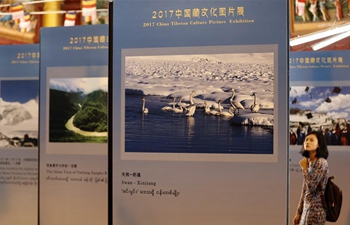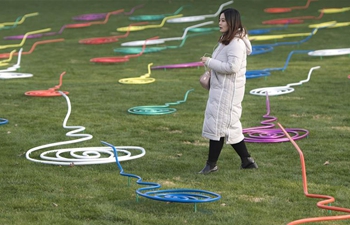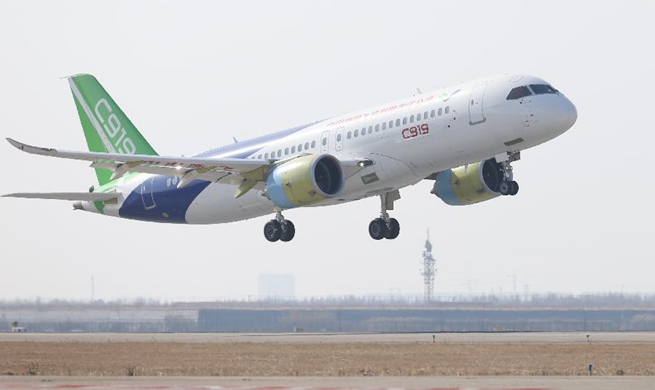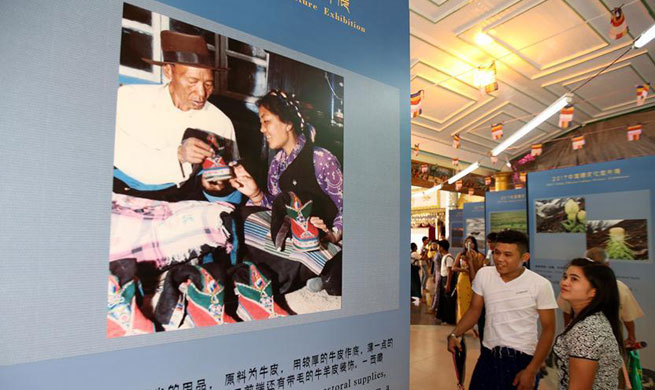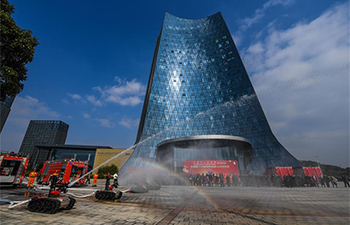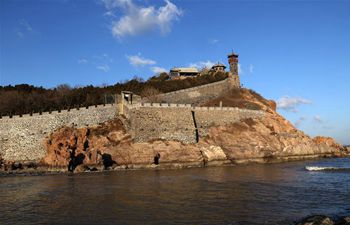TOKYO, Dec. 18 (Xinhua) -- The Tokyo-based headquarters of contractors Kajima Corp. and Shimizu Corp. were raided by prosecutors on Monday on suspicion the firms may have breached anti-trust laws concerning construction bids for Japan's first maglev train project.
Kajima, Shimizu and the two other major contractors, Obayashi Corp. and Taisei Corp., collectively won bids for the majority of the 22 construction projects for a planned maglev train project, Central Japan Railway Co., the operator of the 9 trillion yen (80 billion U.S. dollar) project, said.
Along with Japan's antitrust watchdog, the Japan Fair Trade Commission, the Tokyo District Public Prosecutors Office is looking into allegations that the firms colluded in deciding which of the companies would be awarded contracts, ahead of the formal bidding process.
The offices of Obayashi and Taisei will likely be searched forthwith, investigators said, adding that both Kajima, Shimizu had cooperated with the searches on Monday.
Obayashi's offices were searched earlier in December, after it came to light that a Central Japan Railway Co. official may have leaked information to the firm pertaining to construction tenders.
This prompted suspicions that the four main companies may have violated Japan's anti-trust law by fixing bid prices and determining tender winners ahead of the bidding process.
Following the bidding process, Obayashi, Shimizu and Taisei successfully won four contracts each, and Kajima Corp. secured three contracts for the building of different sections of the next-generation train project.
In April 2016, Obayashi jointly won a contract with Toda Corp. and JR Tokai Construction Co. to build an evacuation exit on the maglev train line. The contract was worth around 9 billion yen (79.29 million U.S. dollars) and four contractors were originally interested in bidding for the contract when it was offered in 2015.
Sources close to the matter said that the JR Central official may have passed information to Obayashi, one of Japan's four largest construction firms, revealing the estimated cost of construction and information on other companies' bidding intentions.
Based on this privileged information, Obayashi is suspected to have encouraged its competitors to submit higher bids and by doing so out-pricing themselves from the tendering process, according to the sources.
An in-house probe has also been launched by JR Central to look into the facts behind the suspicions, as, in addition to the antitrust allegations, only one other bid was actually tendered from another construction firm.
Obayashi had also previously won three other contracts from JR Central for work with its joint venture partners.
The maglev train would be the world's first that operates by using superconducting magnetic levitation technology to propel passengers at speeds of up to 500 kilometers per hour, far quicker than Japan's current Shinkansen bullet trains.
The trains are expected to be operational in 2027 between Tokyo and Nagoya, with the route being extended by 2045 to Osaka.
The journey between Tokyo and Nagoya is expected to take about 40 minutes in total.





